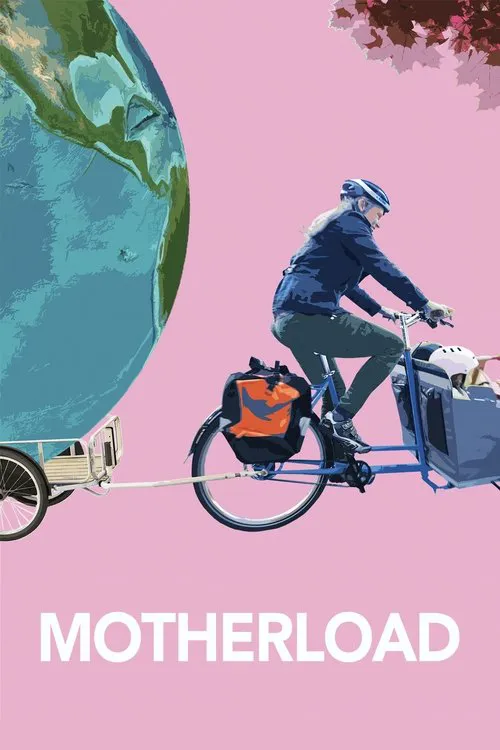Motherload

Plot
Motherload is a documentary film that delves into the journey of Liz Canning, a new mother who embarks on a quest to understand the cargo bike movement in a world dominated by gas-powered vehicles and a culture of consumerism. As she explores the world of cargo bikes, she meets various like-minded individuals who share her vision of a more sustainable and environmentally friendly transportation system. The film begins by showcasing the challenges facing modern parenting, particularly in urban areas where traffic congestion and pollution are rampant. Canning narrates her own experiences, from navigating the streets with her stroller to encountering hostile drivers who seem to have little patience for pedestrians. Through her personal anecdotes, the film underscores the need for a more sustainable transportation system that prioritizes the needs of families and children. As Canning delves deeper into the world of cargo bikes, she meets a cast of characters who are passionate about promoting this alternative mode of transportation. There's Sarah Levy, a cargo bike enthusiast who showcases the versatility and efficiency of these bicycles in carrying children, groceries, and even work equipment. Canning also meets Jason, a Portland-based bike shop owner who shares his expertise on designing and building cargo bikes for families. Through these encounters, Canning gains a deeper understanding of the cargo bike movement, which is not just a fad or a niche interest, but a serious effort to reimagine urban transportation. She discovers that cargo bikes are not just an eco-friendly alternative to cars but also a practical solution for families who need to transport multiple children or heavy loads. The film highlights the benefits of cargo bikes, including reduced carbon emissions, increased mobility for families, and a more pleasant urban environment. One of the most compelling aspects of Motherload is its exploration of the cultural and social factors that contribute to the dominance of gas-powered vehicles in our society. Canning and her subjects discuss the ways in which advertising and media shape our perceptions of transportation, perpetuating a culture of individualism and consumption that prioritizes convenience over sustainability. The film also touches on the role of infrastructure, highlighting the need for bike-friendly roads and dedicated bike lanes to support the growth of cargo bike usage. Throughout the film, Canning engages with various experts, from urban planners to bike industry leaders, to gain a comprehensive understanding of the cargo bike movement. She visits cities around the world, from Portland to the Netherlands, to see how different communities are embracing cargo bikes and promoting sustainable transportation. These global perspectives add depth and nuance to the film, underscoring the possibility of a more radical shift in transportation culture. As Canning's journey unfolds, she confronts the challenges and obstacles that cargo bike advocates face in their efforts to promote alternative transportation. She encounters skeptical policymakers, concerned about the impact of cargo bikes on local infrastructure, as well as frustrated cyclists who feel that cargo bikes are a threat to their own interests. Through these encounters, the film highlights the need for inclusivity and collaboration in the push for sustainable transportation. Ultimately, Motherload presents a compelling vision of a post-petroleum society, where cargo bikes are just one component of a broader effort to rewire our urban ecosystems. Canning's narrative arc is inspiring, as she transforms from an uncertain new mother to a confident advocate for sustainable transportation. The film concludes on a hopeful note, suggesting that even in the most car-dominated of societies, there are still opportunities for change and growth. By sharing the stories of cargo bike enthusiasts and the broader global movement, Motherload inspires viewers to rethink their transportation habits and imagine new possibilities for urban living. As the world grapples with the challenges of climate change, air pollution, and social inequality, this documentary reminds us that the choices we make about transportation are not just practical but also moral. Will we choose to prioritize the well-being of our children, our communities, and our planet, or will we continue to succumb to the convenience and consumerism of a gasoline-powered world? Motherload offers a thought-provoking vision of a different future, one where cargo bikes and sustainable transportation become the norm.
Reviews
Recommendations




